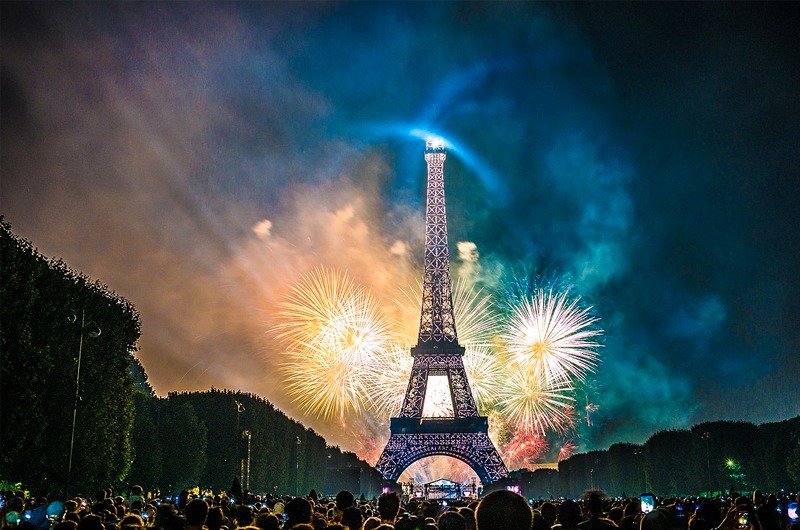On July 14th, every year, France celebrates Fête Nationale or the Bastille Day which can be simply translated into the National Day of France. The historical significance of this national holiday is that it commemorates the fall of the Bastille in Paris (state prison in France in the 17th and 18th century meant for the detention of political dissenters) on July 14th, 1789. It celebrates the beginning of the landmark French Revolution when the Parisians mob squalled the Bastille prison, releasing seven prisoners. This year Quatorze juillet or The Fourteenth of July marked its 100th anniversary, but saw a rather distinctive celebration.
Usually this day is marked by the famous 14 July military parade, called ‘Défilé militaire’ and customary fireworks in the Place de la Concorde, Paris. The ceremony commensed with a tribute to Gen Charles de Gaulle, the chief leader who stood up to the Nazi Germany and spearheaded the resistance in form of a BBC radio address from London. There has been no parade, but the troops this time honoured the health workers and all the social mobilizers and armed personnel who have tirelessly served the nation throughout the Covid-19 crisis and still continue to do so. Since the world is gripped by the deadly pandemic, the event witnessed no military parade on the Champs-Elysées for the first time, since 1945; the end of World War Two. Nearly 2,500 people were among the special invitees, including the families of deceased health workers. All the guests followed the required social distancing measures and witnessed celebrations from marked areas.
President Emmanuel Macron engaged in a rare televised interview post morning events of the ceremony and addressed questions pertaining to the pandemic and French economy. He also spoke about the significance of common European defence and security. He said, “not since the end of the Second World War has Europe been so necessary.” and also added that “building European defense, in connection with the Atlantic Alliance … is a priority for France. It is the theme of this parade. Acting together and strengthening our ability to act collectively is one of the challenges that the European Intervention Initiative, along with other key European projects, wants to address.”
Officials from nations that had helped France in the testing times by taking in French patients, were also invited; namely- Austria, Germany, Luxembourg and Switzerland. European leaders including German Chancellor Angela Merkel also marked their presence at the event. The audience witnessed a traditional flypast which featured, along with military aircraft, the transport plane that was used to airlift the Covid-19 patients during the peak of the global health crisis in France. Amidst other attractions were state of the art, hi-tech military paraphernalia like drones, miniature autonomous vehicles, and anti-drone guns laden soldiers resembling “flying soldier”. Events were closed for the general public and were widely televised. Eiffel tower saw the traditional fireworks symbolising “the resilience” of the nation and marked as “a tribute to all the everyday heroes who worked during the duration of the epidemic.”









